32 Chinese warplanes buzz around Taiwan in just 24 hours – the second-highest number this year after the island nation admitted stationing US troops
- In just 24 hours, 32 Chinese warplanes were detected over Taiwan, the country’s Defense Ministry said.
- Twenty of the aircraft were detected after nightfall and included fighter jets, unmanned drones and medium-range transport aircraft
- It comes after Taiwan’s defense minister appeared to admit that US troops were stationed on islands off the coast of China earlier this week.
In just 24 hours, 32 Chinese warplanes were detected over Taiwan, the country’s Defense Ministry said.
In the 24 hours between 6 a.m. Wednesday and 6 a.m. Thursday local time, the second-highest number of Chinese planes buzzed over the island this year, accompanied by five naval vessels around Taiwan.
Twenty of the planes “crossed the center line of the Taiwan Strait,” the Defense Ministry said in a statement Thursday. The aircraft were detected after nightfall and included fighter jets, unmanned drones and medium-range transport aircraft, according to the ministry.
Of those 20, “nine crossed the center line of the Taiwan Strait and entered the northern, central and southern parts of Taiwan’s (air defense identification zone),” the ministry said in a post on X.
It comes after Taiwan’s defense minister appeared to admit that US troops were stationed on islands off the coast of China earlier this week.
In just 24 hours, 32 Chinese warplanes were detected over Taiwan, the country’s Defense Ministry said. Pictured: File photo of a Chinese jet near an American fighter plane
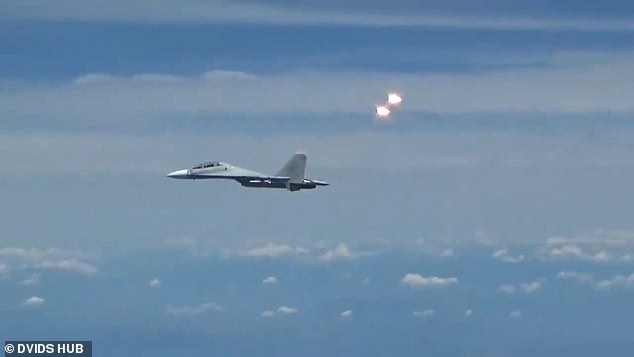
In the 24 hours between 6 a.m. Wednesday and 6 a.m. Thursday local time, the second-highest number of Chinese planes buzzed over the island this year. Pictured: File photo of a Chinese jet near an American fighter plane
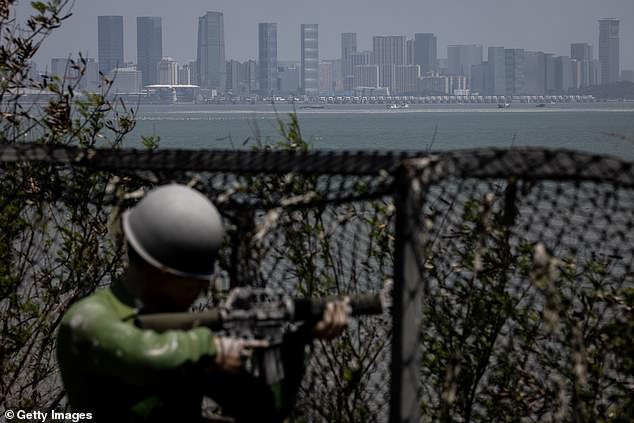
Taiwanese President Tsai Ing-wen has refused to recognize China’s claim to Taiwan, prompting Beijing to cut off high-level communications with his government
China claims Taiwan as part of its territory and has increased its military pressure on the democratic nation since the election of its current President Tsai Ing-wen in 2016.
Tsai has refused to recognize China’s claim to Taiwan, prompting Beijing to cut off high-level communications with his government.
Lai Ching-te, Tsai’s former deputy, was elected president in January despite Beijing labeling him a “dangerous separatist.” He will take office on May 20.
Beijing regularly sends fighter jets and other military aircraft over the island and has an almost constant presence in the waters with its ships.
According to AFP, another 33 fighter jets were detected in late January and early February, the highest number in two other 24-hour periods this year.
Hostilities have escalated after Taiwan’s defense minister appeared to admit that US troops were stationed on islands off the coast of China earlier this week.
It is believed that if Defense Chief Chiu Kuo-cheng was right, the US military would train Taiwanese forces on small islands close to mainland China, including Kinmen Island.
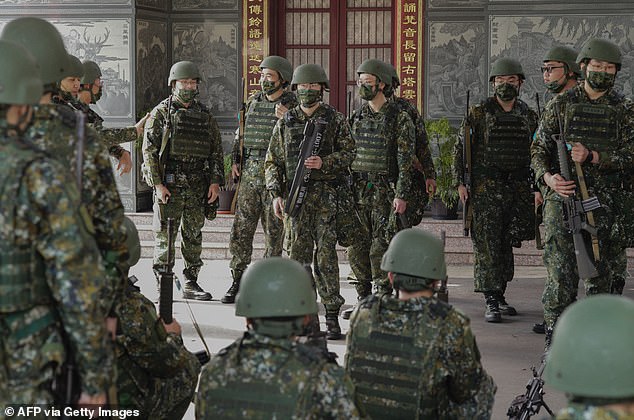
Taiwan’s defense minister appeared to accidentally admit that US troops are stationed off the coast of China, which would mark a surprising escalation of hostilities in the region
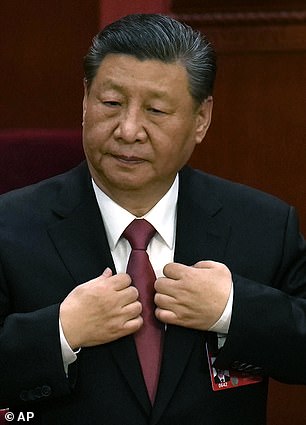
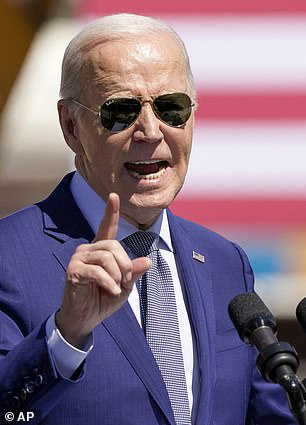
The US has consistently said it would support Taiwan in the event of a Chinese invasion, which Chinese President Xi reportedly warned President Biden he planned to carry out when they held a historic summit in San Francisco last year .
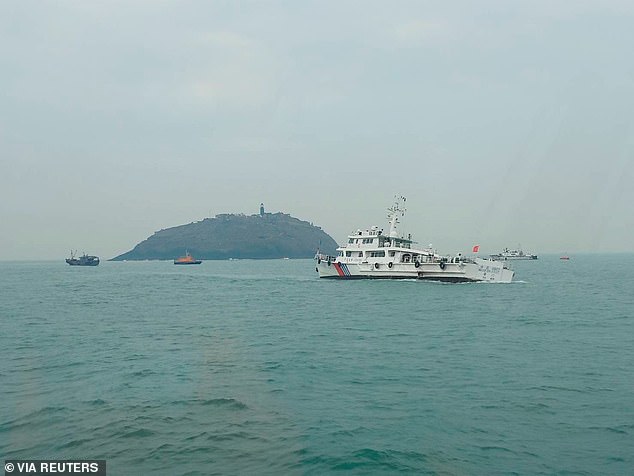
Coastal islands such as Kinmen are sparsely populated and are mainly where most of Taiwan’s amphibious forces are based – which may now be reinforced by US Special Forces
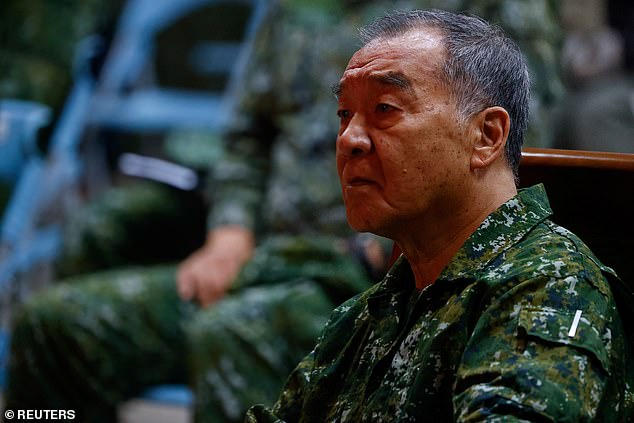
In the photo: Taiwanese Defense Minister Chiu Kuo-cheng
If U.S. troops are stationed on Kinmen, it would mark a dramatic increase in the U.S. presence in the region.
Kinmen Island is located more than 160 kilometers from Taiwan’s main island, but only five kilometers from the Chinese coastal city of Xiamen.
The apparent admission came after a report from Sofrep claiming that US Special Forces had already been deployed to the coastal islands – with only limited forces previously believed to have been deployed to Taiwan.
“This exchange is for mutual observation, to identify the problems we have, to find out how we can improve them and to recognize their strengths so that we can learn from them,” Chiu said in response to a question about the report.
The US has consistently said it would support Taiwan in the event of a Chinese invasion, which Chinese President Xi reportedly warned President Biden he planned to carry out when they held a historic summit in San Francisco last year .
